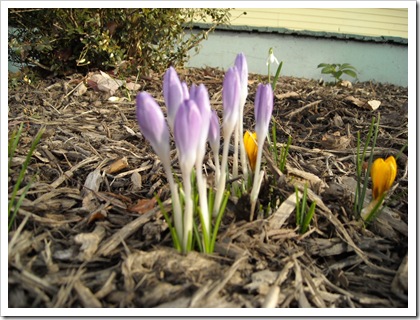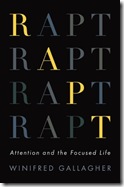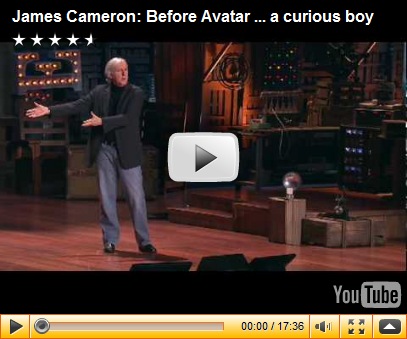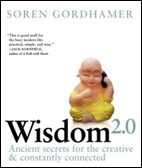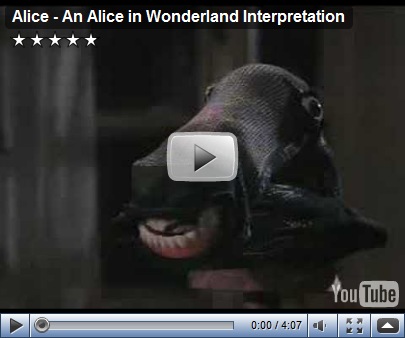Something More than Mere Survival
Judith Shulevitz, from “Making Room For The Sabbath,” a conversation with Terry Gross about her book, The Sabbath World: Glimpses of a Different Order of Time:
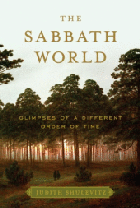 I was fascinated by rules. I sensed that one of the things about my life that I didn't like is that I was a kind of knee-jerk libertarian. Nobody could tell me what to do. But that's not how life works in a society. Societies have rules and we keep them. We don't object to the ones we all keep because we all keep them together. We object to the new ones that don't seem familiar to us. And I wanted to get familiar with these rules because it seemed to me that rules are how society passes on from one generation to the next moral behavior and moral activity and its idea of how life should be shaped and life should be led. And I wanted to get to know what these rules had to say to me...
I was fascinated by rules. I sensed that one of the things about my life that I didn't like is that I was a kind of knee-jerk libertarian. Nobody could tell me what to do. But that's not how life works in a society. Societies have rules and we keep them. We don't object to the ones we all keep because we all keep them together. We object to the new ones that don't seem familiar to us. And I wanted to get familiar with these rules because it seemed to me that rules are how society passes on from one generation to the next moral behavior and moral activity and its idea of how life should be shaped and life should be led. And I wanted to get to know what these rules had to say to me...
The basic principle uniting all these rules is that you as a human being should not be exerting mastery over the world. For one day a week, let the world be as it is and you be in it and you're not trying to dominate it. That's the basic principle. Now the form that the rules took when they were first thought up was agricultural because they were conceived of in an agricultural society. And there's something to me very beautiful about this because not only were they conceived in an agricultural society, they were conceived of in a mainly subsistence farming society. So people were being asked not to bring in the crops. They were being asked not to do basic labors which would have helped them survive and they had to transfer that work of surviving to six days a week. And it had to have been very, very hard because we know how hard it is to survive when you're living off the land. And that to me gives me a sense of the seriousness with which it was taken and the beauty of the idea. Imagine telling people who are struggling to barely survive that one day a week they must give themselves over to something more than mere survival -- and they have the right to even if circumstances dictate otherwise. Those two things are very beautiful to me...
The thing that was most intriguing to me when I was working on the book and remains most intriguing to me, is as a fundamental political idea. And it's an idea that we've really lost in America today, though I think we've had it in the history and, indeed, I try to make the case that we were really one of the most Sabbatarian nations when we were founded by the Puritans. (Sabbatarian meaning keeping the Sabbath.) But this is an idea that we have really moved radically away from. And the idea is this: that as a society we have the right to collectively regulate our time and that everyone has the right not to work at least one day a week. You have to imagine a world in which this idea was conceived of and codified. This had never been said before.
[Thanks Tammy!]


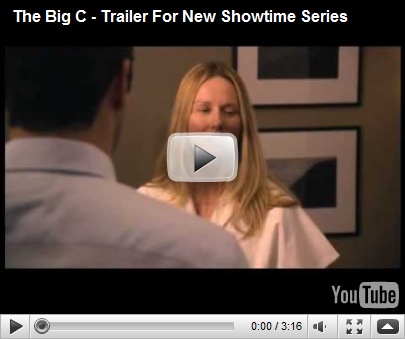

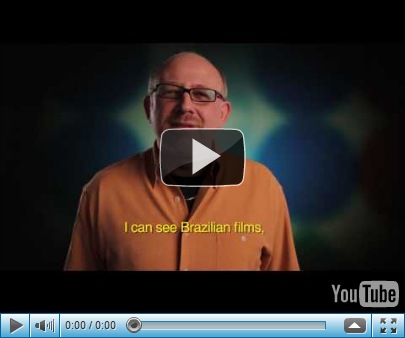
 Another characteristic of maturity — one that any of us would mention — is experience. A grown-up is someone who is experienced and, through having lived long enough to have seen many things, has a point of view and a measure of savvy about how life works. There is certainly no substitute for the experience that accumulates as the years go by, but it is also possible to be alive for a long time and not really experience our living, not really see our life. The human capacity for self-deception and blindness runs deep. We may be alive, but we have not necessarily lived. If we accumulate experiences without really engaging with them, then our experience tends to make us stodgy and boring. As we catalog and define our experiences, possessing them without ever really being possessed by them, we begin to expect that new situations will just be
Another characteristic of maturity — one that any of us would mention — is experience. A grown-up is someone who is experienced and, through having lived long enough to have seen many things, has a point of view and a measure of savvy about how life works. There is certainly no substitute for the experience that accumulates as the years go by, but it is also possible to be alive for a long time and not really experience our living, not really see our life. The human capacity for self-deception and blindness runs deep. We may be alive, but we have not necessarily lived. If we accumulate experiences without really engaging with them, then our experience tends to make us stodgy and boring. As we catalog and define our experiences, possessing them without ever really being possessed by them, we begin to expect that new situations will just be  liberate individuals from repressive social constraints didn’t produce a flowering of freedom; it weakened families, increased out-of-wedlock births and turned neighbors into strangers. In Britain, you get a country with rising crime, and, as a result, four million security cameras.
liberate individuals from repressive social constraints didn’t produce a flowering of freedom; it weakened families, increased out-of-wedlock births and turned neighbors into strangers. In Britain, you get a country with rising crime, and, as a result, four million security cameras. “On a sentence-by-sentence level, it’s more spontaneous. In other words, I know what I want to have said when I’m finished with this writing, but I really don’t know, when I’m down to the nub of it to address it, what’s going to happen. I mean I know where it should go, but it certainly isn’t — the phraseology — is not prefabricated and that’s why it takes me all day to get one sentence written.”
“On a sentence-by-sentence level, it’s more spontaneous. In other words, I know what I want to have said when I’m finished with this writing, but I really don’t know, when I’m down to the nub of it to address it, what’s going to happen. I mean I know where it should go, but it certainly isn’t — the phraseology — is not prefabricated and that’s why it takes me all day to get one sentence written.”
![How the Puppets from Fantastic Mr. Fox Were Made [Slide Show] by Julian Sancton, Vanity Fair, 11.23.2009 How the Puppets from Fantastic Mr. Fox Were Made [Slide Show] by Julian Sancton, Vanity Fair, 11.23.2009](https://blogger.googleusercontent.com/img/b/R29vZ2xl/AVvXsEh66oQly6zRlAhtaUqGLEZ8C_22JYD3_Gg1HrWdice_pXsBQh9gtBVp5a-Axin055Ie0DBUzqB-ASC7GZHkpUt6HRb7BEZz1lQCcSi9N03NwOK6pfTifYXrsnxjYMkLFjGaFr8b/?imgmax=800)
 Originally, Dharma, meaning all traditional spirituality, in this case…All the great spiritual traditions have appeared in a world where human culture, because of technological reasons, first of all, and because of limited number of humans at the time, did not have the power to threaten the world. To threaten the natural world, to threaten the limits of the resources in the world, to threaten each other. Many cultures existed in spatial isolation, or distanced enough from each other to feel safe, which is now an impossibility. We can’t even plan to achieve that in the future because we’re going in the opposite direction. We’re not just closing on each other, we’re mixing up to an incredible degree all over the world.
Originally, Dharma, meaning all traditional spirituality, in this case…All the great spiritual traditions have appeared in a world where human culture, because of technological reasons, first of all, and because of limited number of humans at the time, did not have the power to threaten the world. To threaten the natural world, to threaten the limits of the resources in the world, to threaten each other. Many cultures existed in spatial isolation, or distanced enough from each other to feel safe, which is now an impossibility. We can’t even plan to achieve that in the future because we’re going in the opposite direction. We’re not just closing on each other, we’re mixing up to an incredible degree all over the world.

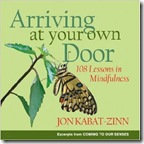 “Everything supports wakefulness if you are willing to let yourself be awakened by tenderly yet consistently connecting though your senses. Everything. But it requires a brave heart, and a mind that sees the folly in clinging…to anything.
“Everything supports wakefulness if you are willing to let yourself be awakened by tenderly yet consistently connecting though your senses. Everything. But it requires a brave heart, and a mind that sees the folly in clinging…to anything.



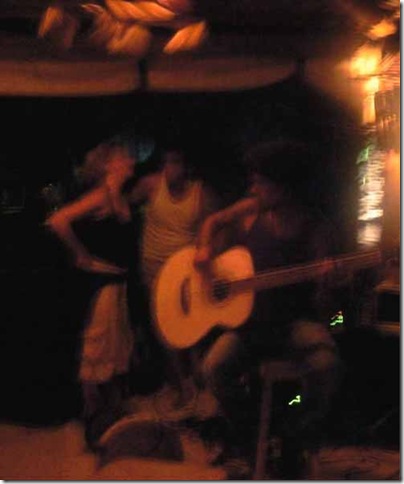

 …people who spend more of their day having deep discussions and less time engaging in small talk seem to be happier, said
…people who spend more of their day having deep discussions and less time engaging in small talk seem to be happier, said 



 “I mean, your left hand is your whole entire past! I wonder if one of my books deals with this.”
“I mean, your left hand is your whole entire past! I wonder if one of my books deals with this.”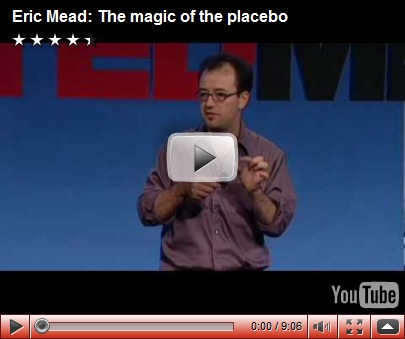








 These results are shocking when you stop to think about them. Each of us has a magnificent hive of billions of neurons in our head, joined to each other by trillions of connections. The human brain is arguably the most complex organ in the natural world. And yet studies on mind wandering are showing that we find it difficult to stay focused for more than a few minutes on even the easiest tasks, despite the fact that we make mistakes whenever we drift away.
These results are shocking when you stop to think about them. Each of us has a magnificent hive of billions of neurons in our head, joined to each other by trillions of connections. The human brain is arguably the most complex organ in the natural world. And yet studies on mind wandering are showing that we find it difficult to stay focused for more than a few minutes on even the easiest tasks, despite the fact that we make mistakes whenever we drift away.

